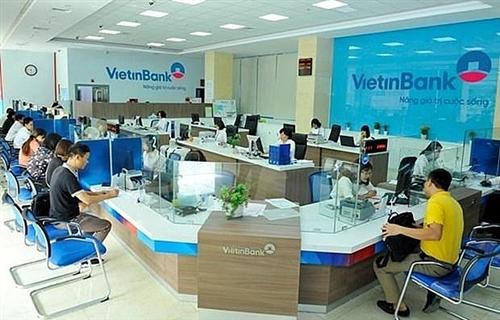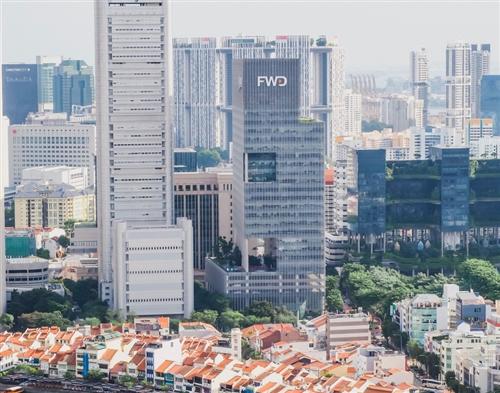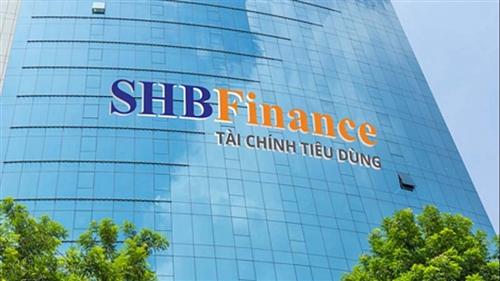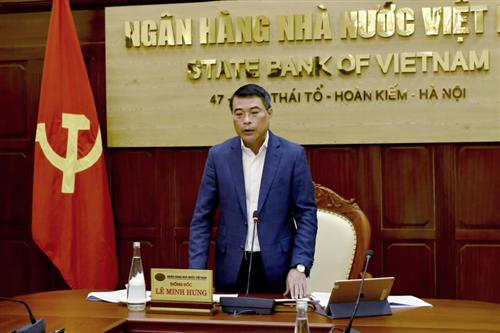Loan policy a true juggling act
Loan policy a true juggling act
The health crisis has led to huge demand for capital for Vietnam to fuel domestic production activities and medical treatment. However, questions arise over how the country can positing itself to access more international loans amid its efforts to control public debts.
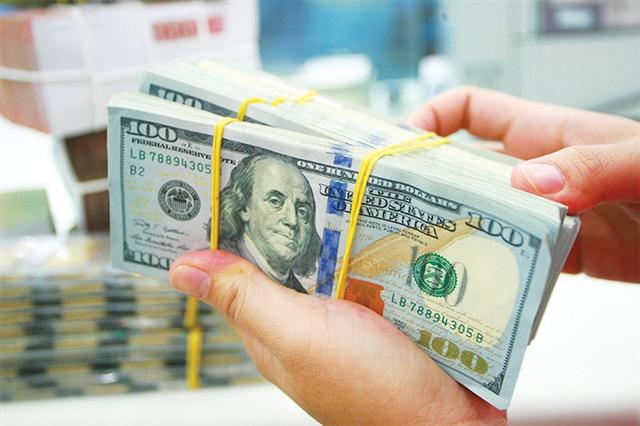
Vietnam is in need of funding from further afield Photo: Le Toan
|
As more countries impose quarantines and social distancing, the fear of contagion and income losses is increasing uncertainty around the world.
In Vietnam, the government is protecting people and enterprises from the economic impact of this global health crisis. Those who are hit the hardest should not go bankrupt and lose their livelihoods through no fault of their own. A family-operated restaurant or the employees of a factory shut down because of a local quarantine will need support to weather the crisis.
The government is deploying a series of policies on supporting unemployed people, those with meritorious services, and enterprises, both in cash and in tax payment delays. So far, the government has announced a fiscal package totaling VND180 trillion ($7.82 billion) for affected firms and households. The Ministry of Finance (MoF) has also proposed a VND300 trillion ($13 billion) financial package to support these people and enterprises. Moreover, the government will also deploy a VND62 trillion ($2.7 billion) social security package to assist the poor, the unemployed, and those with meritorious services.
More than VND100 trillion ($4.34 billion) has been disbursed by banks to date to borrowers.
Moreover, the National Assembly (NA) is also expected to agree on a plan to trim assorted taxes for firms, and this fiscal package will likely be worth billions of US dollars. It is also expected that the government will have to spend about VND3.4 trillion ($147.8 million) deploying measures against COVID-19. This sum will come from the state budget’s provisions for 2020.
International offer
The consequences of the pandemic in Vietnam have forced the country to pump a great deal of money into both eradicating the pandemic and spurring on economic recovery, which are putting a strain on the limited state budget.
A number of high-profile international organisations have proposed some preferential loans for the country to reach this dual target.
A source from the World Bank in Vietnam told VIR that the bank is currently offering two financial packages to nations hit by COVID-19, including Vietnam.
The first one is a $14 billion package of fast-track financing to assist companies and countries in their efforts to prevent, detect and respond to the rapid spread of coronavirus. The package will strengthen national systems for public health preparedness, including for disease containment, diagnosis, and treatment, and support the private sector.
“In this package, Vietnam is able to receive $50 million, with an ordinary interest rate. However, all procedures for the loan will be expedited very quickly, within only one or two weeks instead of nine-12 months as it would usually take. After that, disbursement can be implemented immediately,” the source said. “Currently, the World Bank and the Vietnamese government are negotiating this loan. The bank’s representatives have met with the Government Office, the State Bank of Vietnam (SBV), the Ministry of Health, and the MoF.”
Meanwhile, in the second financial package, the World Bank Group is prepared to deploy up to $160 billion over the next 15 months to support measures that will help countries respond to the immediate health consequences of the pandemic and bolster economic recovery. The broader economic programme will aim to shorten the time to recovery, create conditions for growth, support small- and medium-sized enterprises, and help protect the poor and vulnerable. There will be a strong poverty focus in these operations, with an emphasis on policy-based financing, and protecting the poorest households and the environment.
“With this package, Vietnam is able to receive $500 million which can be directly pumped into the state budget and the country can spend the money on economic recovery,” the source said. “Like the first package, all loaning procedures will be implemented very quickly. However, both Vietnam and the bank have yet to discuss this package.”
Meanwhile, the Asian Development Bank (ADB) has also been offering Vietnam its financial solutions.
“The ADB stands ready to disburse about $400-500 million for loans already signed between it and the country,” an expert from the lender in Vietnam told VIR. “In the time to come, it is expected that the bank will offer Vietnam another package worth about $500 million. However, the bank’s board of management has yet to approve this package, and the Vietnamese side has also yet to show its interest in it.”
A few weeks ago, ADB president Masatsugu Asakawa met with Minister of Finance Dinh Tien Dung and SBV Governor Le Minh Hung, stating that the ADB stands ready to provide financial assistance and policy advice to help the Vietnamese government contain the spread of the outbreak.
“We will consider all options, including quick-disbursing budget support, policy-based lending, and expedited disbursement of existing loans, to ensure any support package can be approved quickly and disbursed in a timely manner,” Asakawa said. On March 18, the ADB announced a $6.5 billion initial package to address the immediate needs of its developing member countries as they respond to the pandemic. Asakawa said the bank will provide additional support as needed.
Along with the World Bank and the ADB, the International Monetary Fund (IMF) is also active in extending its support to pandemic-affected nations including Vietnam.
Managing director Kristalina Georgieva announced last month that the IMF will support vulnerable countries with different lending facilities, including through rapid-disbursing emergency financing, which could amount up to $50 billion for low-income and emerging markets. Of this, $10 billion is available at zero interest for the poorest members through the Rapid Credit Facility (RCF).
“So far, over 90 countries have requested IMF financial support because of the COVID-19 pandemic. Never in the history of the IMF have so many countries found themselves in need of IMF financing and the IMF is working closely with other international financial institutions to provide a strong co-ordinated response,” IMF resident representative in Vietnam Francois Painchaud told VIR. “Emergency financing from the IMF is available through the concessional RCF for low-income countries and the Rapid Financing Instrument for all countries, including Vietnam.”
Burdening public debt
According to the General Statistics Office, in 2019, total budget revenue and total budget expenditure hit over VND1.4 quadrillion ($60.9 billion) and over VND1.3 quadrillion ($56.5 billion), representing a budget surplus of $4.38 billion.
In the first quarter of this year, total budget revenue and total budget spending touched VND391.3 trillion ($17 billion) and VND343.1 trillion ($14.9 billion), meaning a budget surplus of $2.1 billion.
The NA last November adopted a resolution on the state budget for 2020, with total state budget revenue of VND1.51 quadrillion ($65.65 billion), and total state budget expenditure of VND1.75 quadrillion ($76 billion).
Total budget deficit will be VND234.8 trillion ($10.35 billion), equivalent to 3.44 per cent of GDP. Of which, the central budget deficit will be VND217.8 trillion ($9.47 billion) or 3.2 per cent of GDP, and the local budget deficit will be VND17 trillion ($880 million) or 0.24 per cent of GDP.
Experts said the fresh policies of the government and the NA will be a big dent in the state budget. However, the government needs to make thorough considerations before making a decision on borrowing via international loans.
Last year, stricter policies on new government guarantees and robust economic growth of 7.02 per cent significantly reduced public and publicly-guaranteed debt. Total public debt (external and domestic debt) declined to an estimated 55 per cent of GDP in 2019, from its peak of 63.7 per cent of GDP in 2016.
“A lower debt level will require more fiscal consolidation. Looking ahead, Vietnam will need to create more fiscal space for infrastructure development, large demand for health care and education, climate change mitigation and adaptation, and demographic challenges,” said the ADB expert. “In the context of tariff reduction from Vietnam’s commitments in various free trade agreements and the decrease of revenue from oil which may affect the government’s revenue, official development assistance, and concessional lending therefore remain critical financing sources for Vietnam to maintain the strong growth momentum, which in turn provides more opportunities to reduce public debt and improve the quality of fiscal consolidation which would not have been done otherwise.”
|
Bui Ha Linh - Project officer and economic researcher, Friedrich Naumann Foundation
|
Financial assistance from international agencies will help Vietnam to reach a better situation for now, for example in expenses for quarantine and human resources working on the frontline. The assistance also comes with policy consultation which helps a lot.
On the other hand, the amount of the funds will depend on how severe the pandemic is, which might lead to uneven distribution between countries and is based on the judgement of organisations. The burden on government responsibilities is too large, so we have to accept loans and do not force the government to stand by itself with limited budget in this volatile time.
The World Bank has promised a package of up to $50 million in two weeks. Packages from other institutions are also coming but will be based on Vietnam’s losses from the pandemic, so we are not sure how much they will be.
Phan Dung Khanh - Investment director, Maybank Kim Eng Securities
 |
In the short run, receiving financial help from international organisations such as the Asian Development Bank or the World Bank could help Vietnam in updating and implementing the pandemic response plans. But in the long term, while the pandemic wreaks havoc across the global economy, those packages may not be enough. In some countries in Europe, the idea of getting loans has provoked some criticism because governments do not want tough deficits and debt criteria attached to any loans.
Investors in the stock market just closed out their worst quarter in nearly 20 years with an indiscriminate selloff. Hence, investors now would just put their cash into stocks given authorities’ containment measures prove effective.





